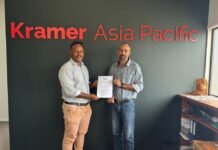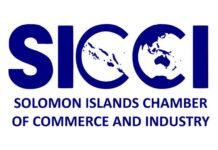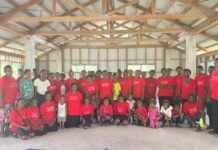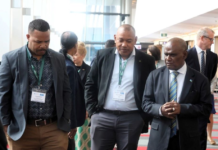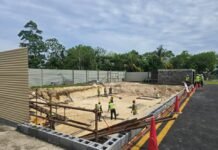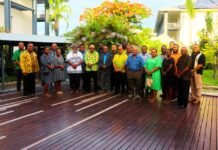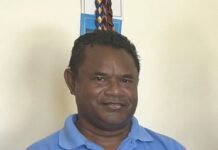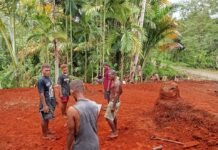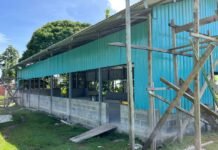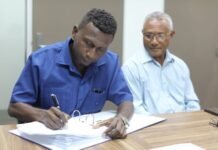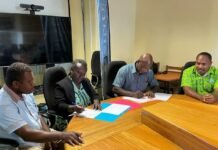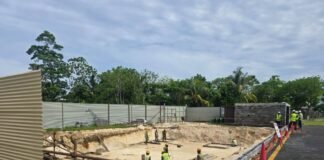
BY ALEX DADAMU
WITH the latest drama and commotion after the successful appointment of the Pacific Islands Forum (PIFS) Secretary-General which resulted in the withdrawal of the Micronesian Islands States, one thing is clear: the future of the PIFS is obviously fragmented and deeply polarized.
CEO, iTuna Intel and Founding Director, Pacific Catalyst and a legal adviser to the Marshall Islands, Dr. Transform Aqorau in a response to Sunday Isles enquiry on what he thinks about the selection process for a new Forum’s Secretary-General, said the difficulties of travel has also exacerbated the challenge of arriving at a consensus.
He said that had the leaders stuck to the notion of rotation amongst the three regions, the outcome may have been different.
Dr. Transform pointed out that the Solomon Islands would now have to navigate through several different layers of doing business.
“…and if indeed we see the emergence of Micronesian organization. It might not necessarily be a bad thing, it’s just a different way of doing business,” he said.
Dr. Transform said Henry Puna’s top priorities for this year should be climate change, fisheries, oceans, and security which are big issues, and also developing a new economic pathway post-COVID-19 is also a big concern now.
“Trade is also high and improving economic and social well beings of Pacific Islanders, and dealing with the diabetes crisis, and human rights abuses in West Papua.”
Recently commenting on the issue, Dr. Tarcisius Kabutaulaka, a Solomon Islander who is a Political Scientist and Associate Professor and Director of the Center for Pacific Islands Studies at the University of Hawai‘i at Mānoa, Hawaii said that he believes there is an opportunity for reconciliation down the lane -– and it is important that that must be done.
Dr. Kabutaulaka said the essence of the Pacific way is like, “yes! We do have disagreements, and disagreements are sometimes good, and that they make us think about issues. But the challenge is what we do as a result of this.”
“There is a need for Pacific Island leadership. Our leaders in the region should step up and say, Okay, we have disagreed, let’s find ways to resolve it, that’s at the government level.
“But I also want to note that regionalism exists not only at the government level. There is regionalism through Church organizations, the Council of Churches, women’s organizations, youth groups, and also our ordinary Pacific Islanders who have had connections throughout the region.
“I believe that you know, we still have an opportunity to mend this relationship, and keep the Pacific together in the way that we’ve, we’ve known in the past,” Dr. Kabutaulaka told Pacific Media Network (PMN) Solomons, an online radio platform based in New Zealand.
It was understood that five Micronesian member States of the Pacific Island Forum have signalled their plan decided to quit their membership in PIF.
This was in response to the Forum’s appointment of a Cook Islander as the new Secretary-General earlier this month.
According to the recently signed communique, the Micronesian States agreed that there’s no value in participating in an organization that does not respect established agreements, including the gentlemen’s agreement or sub-regional rotation.
The Presidents of Nauru, the Federated States of Micronesia, Kiribati, Marshall Islands, and Palau, said they agree to start to initiate the formal process of leaving the Forum. That process takes a year.






